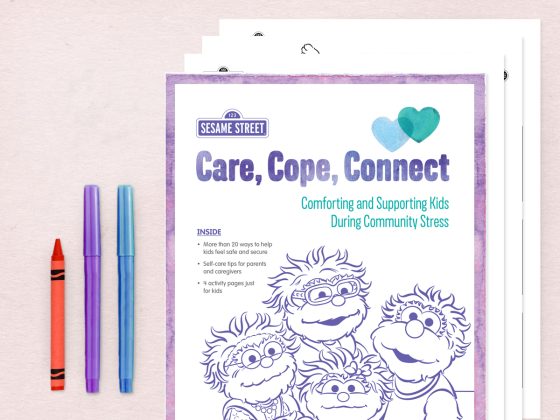
Care, Cope, Connect Provider Workshop
The support you offer in difficult times is crucial to your community.
Now more than ever, everyone needs to find a way to support one another and provide as much of a safe haven as possible. This guide can help support families who may be in a state of fear, anxiety, or loss.
Here are three short workshops for parents and caregivers. You know your community best; tailor these ideas to the group you’re working with. Each workshop focuses on one page, but if possible, distribute the entire guide for parents to take home. You might also compile and provide a list of local resources that can support them.
Workshop 1: Care
Brainstorm and share ideas for comforting children during times of community stress (which occurs when serious challenges strongly affect a community).

- Distribute copies of page 6 of the guide and ask a parent to read it aloud to the group. Explain how having these ideas handy can help parents navigate tough times and talks with their kids.
- Have parents break into small groups to brainstorm and add their own ideas for what they say or do in times of crisis, or ideas for the future. They might also circle one or more ideas they’d like to try.
- Gather the group together and, on chart paper, create two columns, “SAY” and “DO.” Ask parents to share the ideas they discussed, distinguishing between the routines and rituals they might do with their families (“DO”) or the words they use to explain the situation and comfort children (“SAY”). If possible, distribute the entire guide to parents.
Workshop 2: Cope
Help parents explore ways to help themselves and their children stay resilient in the face of adversity.
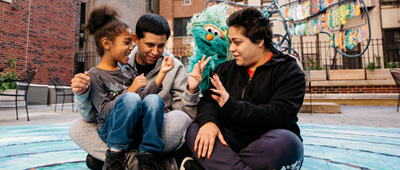
- Distribute copies of pages 3 and 4 of the guide (“Calming Yourselves” and “Hearts and Hope”). Invite parents to take turns reading it aloud.
- Ask parents to share more ideas like the ones on the page. You might focus on specific ways parents protect children from seeing and hearing scary stories in the media, and how they explain the information that kids do hear.
- Have the group look at the coloring page, and invite parents to complete it with their children at home when the family just needs to take a break and relax for a while (kids color the big picture, adults color the background). Ask:
- How might this activity help your family during challenging times?
- What are some things you might talk about as you color together?
- Where might you display the finished page?
- What are some other relaxing, distracting activities you might do together with your child?
- If possible, distribute the entire guide to parents.
Workshop 3: Connect
Explore ways to turn to friends, family, and the surrounding community in the most difficult moments.
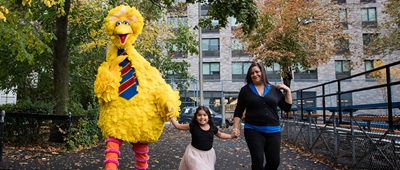
- Distribute copies of page 8 and begin a discussion: Have parents noticed an increase in children’s separation anxiety? What are some signs they’ve noticed? Ask them to read the list of suggestions for easing children’s anxiety at the top of the page. Then ask them to share their own ideas. List responses on chart paper.
- Mention that having a family safety plan is an important and practical way to help children feel safer when they’re away from their parents. Ask participants to name some safe places within the community. Each situation is different; the goal is for families to decide on places to go or to meet if they are separated and there is a crisis or emergency. They should be places where children will be cared for in their parents’ or caregivers’ absence.
- If possible, distribute the entire guide to parents.
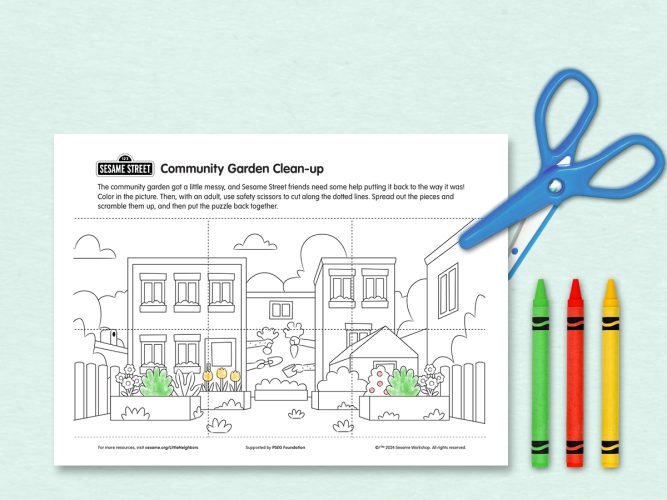
Community Garden Clean-up
Teamwork makes taking care of our communities a little easier.
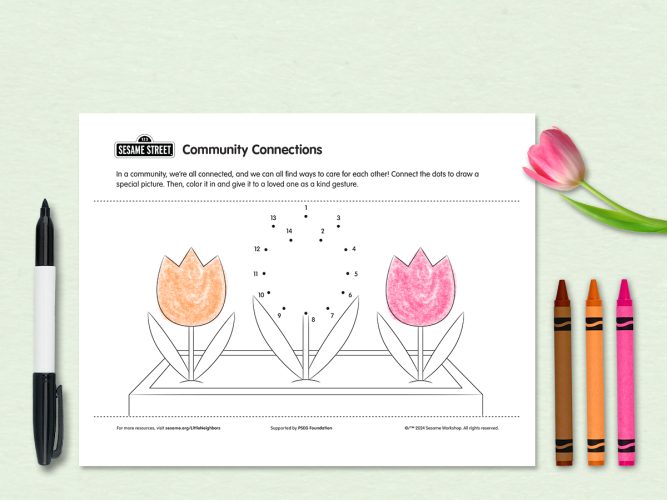
Community Connections
Showing our love through art is one great way to care for one another.
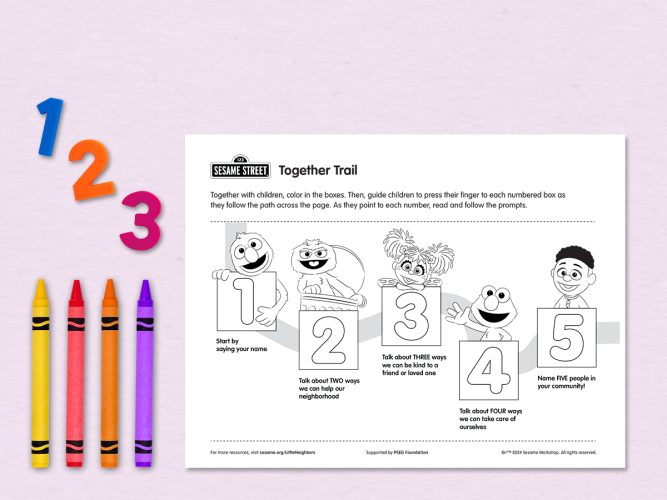
Together Trail
Help children practice counting and learn ways to help your community.
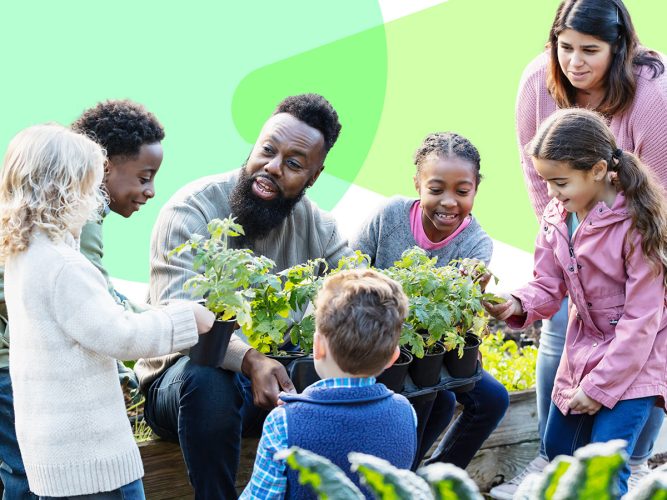
Engaging Kids with Nature and Community: Outdoor Activities and Adventures
Learning to care for the environment starts with loving the natural world around you.

Empowering Kids to Make a Big Impact in Their Communities
Learning about what makes a community is the first step in learning how to take care of our communities!
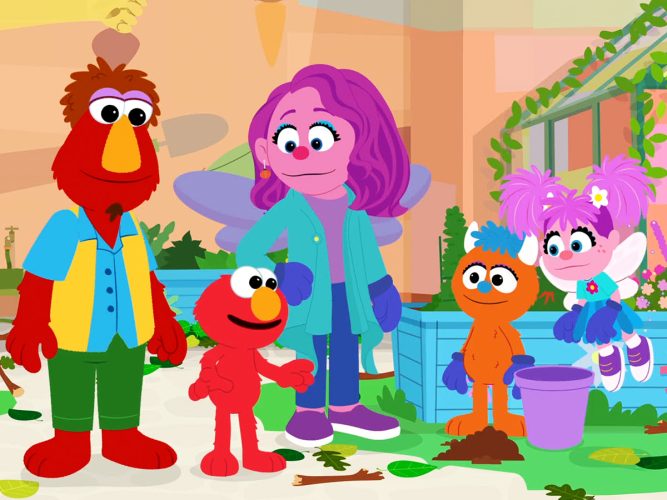
A Garden of Support
Communities can tackle big problems by working together!
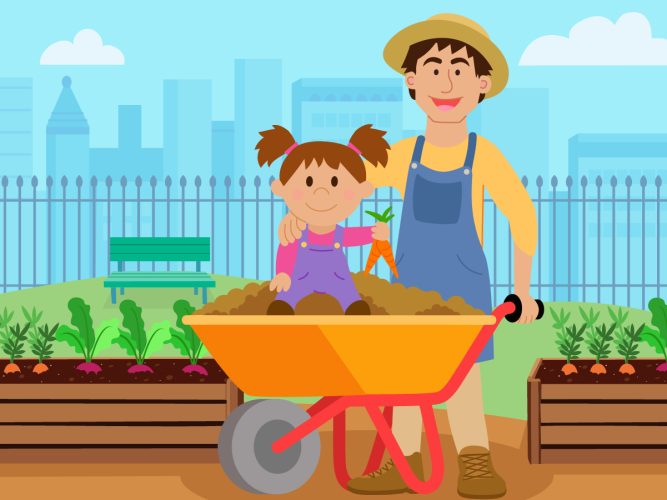
Little Neighbors: Fostering Community Connection, Engagement, and Exploration
